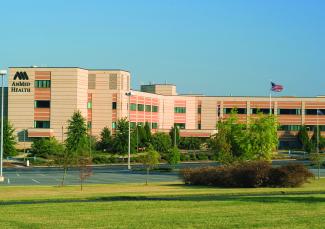A hernia happens when fat or an organ, such as the intestine or esophagus, pushes through an opening of the muscle wall around it. The condition often causes pain, swelling and a bulge. Hernias usually don’t go away on their own, so a surgeon may need to push the bulge back into your body and reinforce the weakness in your abdomen.
Hernia Repair
GERD Surgery
Sometimes called acid reflux or heartburn, gastroesophageal reflux disease (GERD) is a condition where stomach acids "back up" into the esophagus due to a faulty stomach valve. Transoral incisionless fundoplication (TIF) repairs the valve to prevent reflux without making an incision in your body. It has a lower risk of complications (side effects) than traditional fundoplication, and it shortens your recovery time.
Barrett's Esophagus Treatment
Left untreated, GERD can cause Barrett's esophagus—a condition in which the lining of your food pipe is replaced with cells like those in your small intestine. Barrett’s esophagus is a serious illness that can eventually lead to cancer.
To prevent esophageal cancer, your doctor may recommend radiofrequency ablation. This outpatient procedure uses heat to destroy precancerous cells so new, healthy tissue can grow over the next several weeks.
Gallbladder Removal
If you need a cholecystectomy (gallbladder removal) due to gallstones or pain, you may benefit from da Vinci robotic technology at AnMed Medical Center. This equipment lets your surgeon remove the organ through a single small incision—rather than the four incisions required for surgery without the robot. That less invasive approach leads to a faster recovery and very little scarring.
Paul Frassinelli, MD, has been performing single-incision robotic gallbladder removal longer than any other doctor in South Carolina.
Colon & Rectal Surgery
AnMed Piedmont Surgical is home to Anderson’s only colorectal surgeon, Brian Sadowski, MD. Because of his specialized training, you can stay in your community for advanced care. This includes an operation for ulcerative colitis that removes the colon, but still allows people to have bowel function without a permanent ostomy (opening in the belly for stool to pass through). He also performs operations for rectal prolapse and fecal incontinence.
Many procedures can be done through small incisions, allowing you to leave the hospital in just a few days and return to your activities as soon as possible.
Fistula, Fissure & Hemorrhoid Treatment
A variety of conditions can affect the anus, which is the opening of the lower end of your rectum through which stool passes. Our colorectal specialists can treat:
- Anal fistula – Hole that develops as the result of an anal abscess (swollen area with pus)
- Anal fissure – Split or tear in the lining of the anus due to large, hard stools
- Hemorrhoids – Itchy, painful and swollen rectal veins
Appendectomy
Your appendix, part of your large intestine, usually must be removed right away if it becomes infected and inflamed. Appendicitis pain can be severe, and you need to go to the emergency room for treatment. A surgeon will remove the organ from the lower right side of your abdomen through one incision or several smaller incisions.
